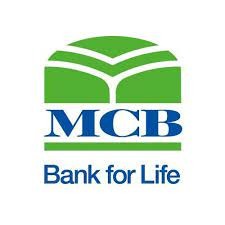ISLAMABAD: Roshan Digital Account (RDA) is the historic step of the State Bank, allowing overseas Pakistanis for the first time in the country’s history to open an account in a Pakistani bank while sitting in their host country without any hassle, states MCB Bank Branch Manager Mohsin Saleem.
He was talking to WealthPK during an exclusive interview, and was responding to a question on how the RDA has made its mark in Pakistan’s digital transformation effort.
Further elaborating, Mohsin Saleem said value of the accounts opened under RDA had reached $3.16 billion as of December 2021, showing its popularity with overseas Pakistanis.
MCB was offering RDA in nine currencies in addition to the Pakistani rupee. The bank’s initiatives such as Roshan Apna Ghar, Roshan Apni Car, Roshan Samaaji Khidmat, Roshan Qurbani Service, and numerous other services have opened new doors of investment for Pakistani diaspora. Future investment opportunities and value-added services are also being extended by the bank.
There are three to four forums, where overseas Pakistanis can invest, including the stock market, real estate, and government certificates with high returns. The return rates offered by MCB are 5% for foreign currency accounts and 11-12% for rupee-denominated accounts.
Q: How are high interest rates affecting banks’ operations?
A: The Karachi Interbank Offered Rate (Kibor) is currently hovering around 16-17%, which is unusually high and affects banks’ lending as no one is that eager to take a loan at such a high interest rate. Though borrowing and lending money is the primary function of commercial banks, we are only concentrating on current accounts because they do not require banks to pay interest as savings accounts do.
Q: What risks is your bank facing amid the volatile economic environment?
A: The bank’s risk exposure has increased due to a slowdown in economic growth. Our bank is currently facing market risks, capital adequacy risks, credit risks, and liquidity risks due to changes in market variables such as high interest rates, foreign exchange volatility, dwindling stocks and high commodity prices.
Q: How does political uncertainty affect the investment environment in the country?
A: Political stability is a prerequisite for an economy to grow sustainably and restore investors’ confidence to put their money in it. There must be a stable political environment in the country so that investors can be assured that their investments would be protected. Political instability can negatively impact the economy/equity market, thus resulting in decreased profitability.
Q: Why are banks’ profits dwindling? What possible steps can banks take to offset the crunch?
A: Heavy taxation has dwindled the net profits of the smaller banks though their before-tax margins are fine.
However, creating new deposit products and increasing the current product offering and taking advantage of expanding branchless, mobile and digital banking opportunities can help banks turn around their fortunes.
Financial Performance
MCB Bank Limited’s net markup climbed 19% to Rs18.11 billion in the three months ending on March 31 of the previous fiscal year 2021-22 (3MFY22) compared with Rs15.24 billion over the same period in fiscal 2020-21.
The company’s total income stood at Rs23.83 billion, up 19% from Rs19.98 billion in 3MFY21.
The company’s total non-markup went up to Rs9.76 billion in 3MFY22, which was 10% higher than Rs 8.89 billion in 3MFY21.
Before-tax profit stood at Rs14.92 billion in 3MFY22 compared to Rs11.27 billion in 3MFY21, up by 32%. The after-tax profit stood at Rs8.91 billion compared to Rs6.79 billion, up by 31%.
The earnings per share (EPS) increased to Rs7.52 in 3MFY22 from Rs5.73 in 3MY21.
Results in 2020-21
During the fiscal year 2020-21, the company’s net markup decreased by 10% to Rs68.37 billion from Rs75.84 billion in 2019-20. The total income also decreased by 6% year-on-year.
Total non-markup/interest expenses for FY21 stood at Rs42.17 billion compared to Rs39 billion in FY20, posting an increase of 8%.
Profit-before-tax for FY21 stood at Rs53.27 billion compared to Rs49.31 billion in FY20, posting an increase of 8%. Profit-after-tax for FY21 stood at Rs31.32 billion compared to Rs29.56 billion in FY20, posting an increase of 6%.
The EPS showed consistent growth over the last few years. EPS stood at Rs18.02 in 2018, Rs20.23 in 2019, Rs24.5 in 2020 and Rs26 in 2021.





